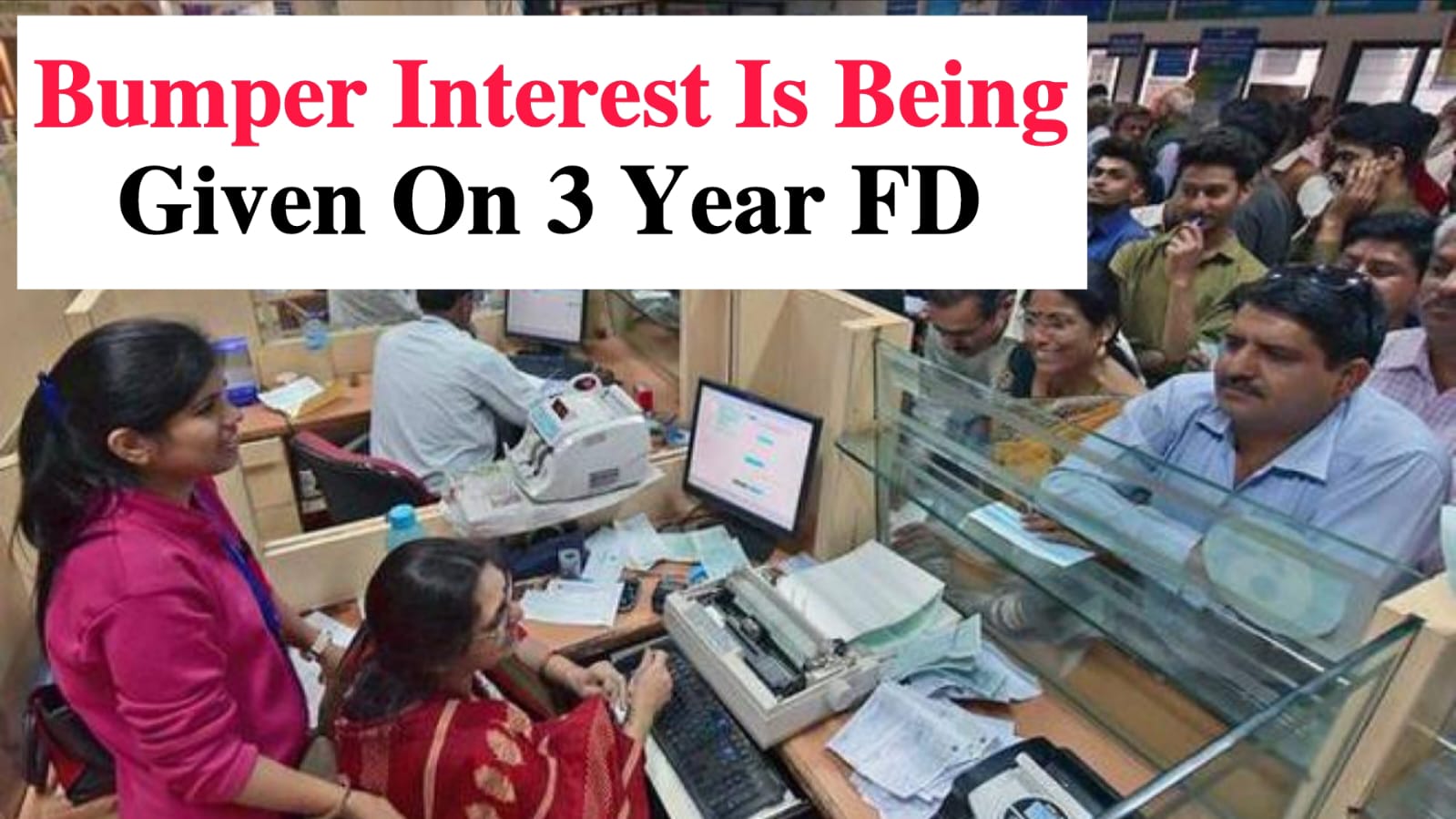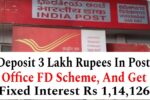Bank FD Scheme : The Reserve Bank of India (RBI), in its recent monetary policy decisions, has reduced the repo rate three consecutive times. While this move aims to boost lending and encourage economic growth by making loans cheaper for borrowers, it has had a ripple effect on deposit instruments, particularly Fixed Deposits (FDs). As a result, interest rates on FDs across major commercial banks have witnessed a significant decline. This situation has particularly impacted conservative investors—especially senior citizens—who rely heavily on the fixed and secure returns provided by FDs to support their post-retirement life.
However, amidst this challenging landscape, there is a silver lining. A few small finance banks (SFBs) are offering relatively high interest rates on fixed deposits, going up to 8.8%, which is significantly higher than what most large public and private sector banks are currently offering. These high-interest FD schemes are proving to be a lucrative investment option for those seeking stability and better returns, particularly the elderly who prefer low-risk avenues for wealth preservation and income generation.
Bank FD Scheme : Top Small Finance Banks Offering the Highest FD Interest Rates
Among the various SFBs, Suryoday Small Finance Bank is currently offering one of the most attractive fixed deposit schemes in the market. For a tenure of 3 years, senior citizens can earn an impressive interest rate of 8.8% per annum. This rate is particularly appealing when compared to the 6-7% average offered by traditional banks for similar durations.
Following closely is Utkarsh Small Finance Bank, which provides an interest rate of 8.75% on 3-year FDs for senior citizens. These competitive rates are designed to attract conservative investors who are looking for safety and high returns.
Other institutions like Unity Small Finance Bank and Jana Small Finance Bank are also offering FD interest rates ranging between 8.25% to 8.5%, depending on the tenure and investor category. These rates stand out significantly in today’s low interest rate environment, making these FDs a preferred choice among those who are unwilling to take risks in volatile markets.
Bank FD Scheme : Why Senior Citizens Should Consider These Options
Senior citizens, more than any other demographic, prefer stability and predictability in their investments. They typically avoid equity markets due to their volatile nature and instead look for instruments that offer guaranteed returns. Fixed deposits have long been the backbone of their investment strategy, offering peace of mind along with a regular income stream.
Given the current downward trend in interest rates across larger banks, these high-return FD schemes offered by small finance banks are an excellent opportunity for seniors to lock in attractive interest rates for a medium-term horizon like three years. Investing in such FDs not only provides them a steady source of income but also helps in better planning of medical, household, and lifestyle expenses during retirement.
For instance, a senior citizen investing ₹5 lakh in an FD offering 8.8% interest can earn close to ₹44,000 annually in interest alone, which is a meaningful addition to their pension or other sources of income.
Bank FD Scheme : Things to Keep in Mind Before Investing
While high-interest FDs can be very tempting, it’s important for investors—especially senior citizens—to exercise due diligence before locking their funds into any fixed deposit scheme. Here are some important points to consider:
-
Check the Financial Health of the Bank:
Before investing, it is crucial to assess the financial stability and credibility of the small finance bank. Unlike large commercial banks, some SFBs may not have the same level of financial robustness. One can look into their credit ratings, NPA ratios, and past performance to gauge reliability. -
Insurance Coverage under DICGC:
Ensure that the bank is covered under the Deposit Insurance and Credit Guarantee Corporation (DICGC). This scheme provides insurance coverage of up to ₹5 lakh per depositor per bank. While this doesn’t cover the entire amount in case of large deposits, it does offer a safety cushion in case the bank fails. -
Understand Premature Withdrawal Conditions:
High-interest FDs may often come with strict premature withdrawal clauses. This means if the investor decides to break the FD before maturity, they may not only lose interest but may also have to pay penalties. It’s advisable to read the fine print regarding lock-in periods and early withdrawal charges. -
Compare Interest Rates Across Tenures:
Sometimes banks offer the highest interest only for specific durations. It’s important to compare FD rates across different tenures to choose one that matches your financial planning needs. -
Evaluate Payment Frequency:
Check if the interest is paid monthly, quarterly, or annually, especially if you’re relying on it for regular income. Also, see if there’s a cumulative FD option where interest is reinvested and paid at maturity, which might be more beneficial for those who don’t need regular payouts.
A Strategic Move for Retirement Planning
Investing in high-interest FDs from credible small finance banks can play a critical role in a senior citizen’s retirement strategy. These instruments offer a good mix of safety, income stability, and higher returns compared to traditional bank FDs. With inflation eating into savings and other asset classes being too volatile or complex, fixed deposits remain one of the most accessible and reliable forms of investment.
Moreover, with a 3-year lock-in period, these FDs allow elderly investors to plan their finances with a mid-term view. They can align such deposits with future needs such as health expenses, travel plans, or gifts for children and grandchildren.
Final Thoughts
In conclusion, while the RBI’s rate cuts have impacted the traditional avenues of fixed-income returns, not all is lost for conservative investors. Small finance banks are stepping up with competitive interest rates on fixed deposits, offering a golden opportunity for senior citizens to secure better returns on their hard-earned savings.
However, as with all investments, it is essential to approach with caution. Proper research, understanding the terms and conditions, and aligning with individual financial goals will help in making an informed and safe investment decision.
High-interest FDs can be a smart move—but only when invested wisely.



